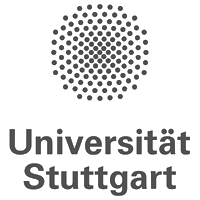 301-400
301-400 


The University of Stuttgart is situated in one of Europe's most dynamic economic regions with a worldwide reputation for excellence in the fields of mobile and information technology, production, process engineering as well as in life sciences. Founded in 1829, the former College of Technology has now grown into a research-intensive university which has its focus on Engineering and Natural Sciences, with a unique profile that concentrates on closely networking these disciplines with the Humanities and Social Sciences. The university offers its students more than 100 Bachelor and Master study programs. Among them are ten internationally oriented MSc courses taught in English and two German-French MA courses. Furthermore, there are courses held in cooperation with renowned universities abroad as well as online study programs for people in full-time employment. 4,800 employees work in over 150 institutes, 10 faculties and in central institutions at the University of Stuttgart. At the moment, around 25,000 students are registered (two thirds among them in engineering sciences). The share of international students (20%) is far above average. With its focus on Engineering and the Natural Sciences and their embedment in society and the economy, the University of Stuttgart is one of Germany's most successful research universities and is a member of TU 9, a group of the leading technical universities in Germany. The university ranks fourth in Germany with regard to third-party funding per professor (Federal Statistical Office 2008) and is among the top ten for German recruiters from every industry sector (Wirtschaftswoche 2010). Research projects at the University of Stuttgart include the Cluster of Excellence ˇ°Simulation Technologyˇ± and the Graduate School ˇ°Advanced Manufacturing Engineeringˇ±, both of which were successful in the recent ˇ°Excellence Initiativeˇ± by the Federal and the State governments, as well as numerous collaborative research centres, research units, and EU projects. The university hosts one of the three federal High-Performance Computing Centres and is a Cooperative Research Campus for ARENA2036 (Active Research Environment for the Next Generation of Automobiles). The main fields of research can be specified as follows: "Complex systems and communication", "Modelling and simulation technology", "New materials", "Design and technology of sustainable living spaces", "Integrated product and production design", "Mobility", "Sustainable energy supply and the environment", and "Technology concepts, technology contexts and technology assessment". As campus university with two well connected locations, close to attractive recreation possibilities in the environment and closely integrated into the cultural live of the city, the university provides the best conditions for studying and working as well as a diversity of job chances for graduates in one of Europe's strongest economic regions home to companies such as Daimler, Bosch, or Porsche. Together with modern information technologies, comfortable hostels and housing for guest lecturers, the neighbouring institutions of the Max Planck-, the Fraunhofer Institute and the German Aerospace Center constitute a fertile ground for innovations and scientific communication.
 301-400
301-400 
| Subject | Rank |
|---|---|
Automation & Control | 76-100 |
Water Resources | 101-150 |
Metallurgical Engineering | 101-150 |
Mechanical Engineering | 151-200 |
Materials Science & Engineering | 151-200 |
Mathematics | 201-300 |
Nanoscience & Nanotechnology | 201-300 |
Energy Science & Engineering | 201-300 |